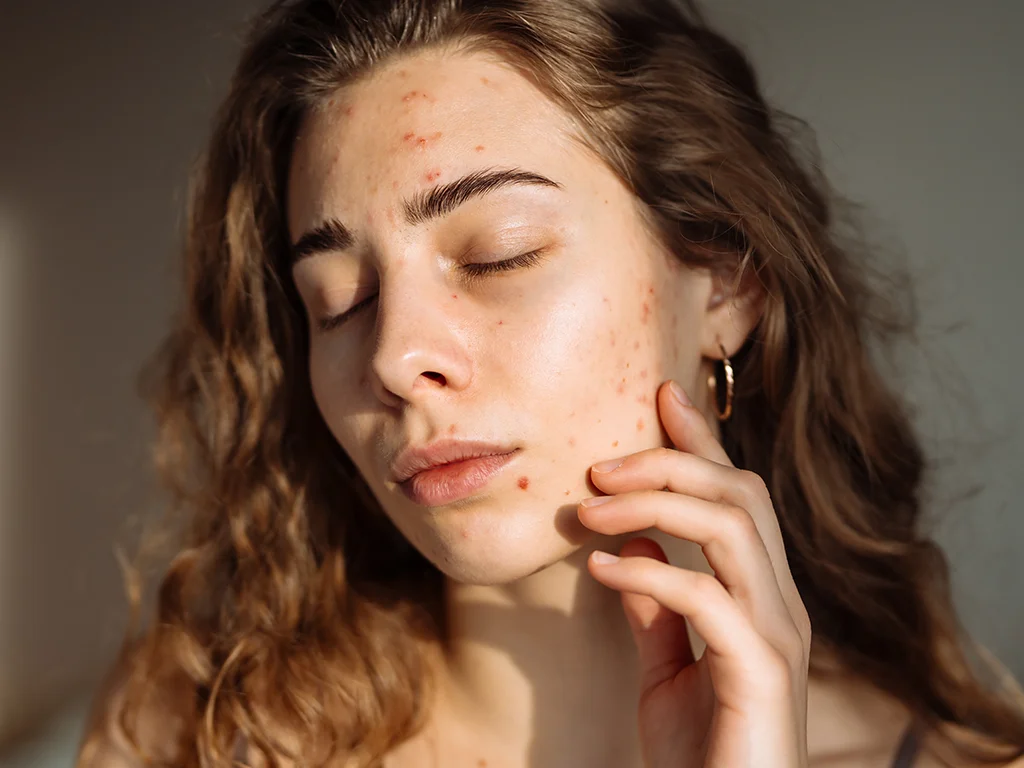
Navigating Acne on Dry Skin: 3 Treatments that Work
Do you struggle with the unique challenge of managing acne while keeping your dry skin nourished? It's a common misconception that acne only affects oily skin, leaving those with dry skin types underrepresented and often mistreated with harsh products that exacerbate their skin issues.
In this blog, we delve into dermatologist-approved treatments specifically designed for dry, acne-prone skin. These solutions not only tackle breakouts effectively but also cater to the delicate balance needed to maintain hydration and skin health. Whether you're dealing with persistent pimples or seeking preventative care, discover how to achieve clear, vibrant skin without compromising on moisture.
Anti-Acne Treatments for Dry Skin by Dermatologists
Finding the right treatment for acne on dry skin can be challenging, as many traditional acne solutions are formulated for oily complexions and can exacerbate dryness. The following treatments not only clear breakouts but also ensure that the skin's moisture barrier is protected and strengthened.
1. Hydrafacial®️
The Hydrafacial®️ is a multi-step treatment known for its efficacy in treating various skin concerns, including acne on dry skin. This gentle procedure involves cleansing, exfoliating, and hydrating the skin, using a patented device that delivers moisturising serums deep into the pores. It's particularly beneficial for dry, acne-prone skin as it removes impurities without stripping the skin of its essential oils, thus preventing further dryness.
2. Klear™️ Anti Acne Facial
The Klear™️ Anti Acne Facial is tailored for those with dry acne-prone skin. This treatment features a customised gel-based peel containing gentle active ingredients such as salicylic and glycolic acid. These acids are key in treating dry skin acne as they exfoliate the skin softly, removing dead skin cells while promoting moisture retention. The gel-based peel ensures that the skin remains hydrated, not just exfoliated, calming active breakouts and reducing the likelihood of future ones as well as minimising post-acne scars.
3. Klear™️ Anti Acne Drip
Complementing topical treatments, the Klear™️ Anti Acne Drip includes master ingredients like vitamin C, glutathione, and zinc, which are essential for managing acne on dry skin. Vitamin C boosts collagen production and reduces inflammation, while glutathione aids in detoxifying the skin, and zinc repairs skin tissue and soothes irritated skin. This potent combination enhances the effectiveness of other acne treatments, reduces acne-induced inflammation, and boosts the skin's immune function, all within a quick 30-minute session that fits easily into a busy schedule.
4. Customised Skincare Routine
A customised skincare routine is crucial for managing dry acne-prone skin. Our aesthetic-dermatologists will access your skin conditions and recommend products that address both dryness and acne effectively. Such routines might include gentle cleansers, hydrating non-comedogenic moisturisers, and targeted acne treatments, ensuring that the skin remains balanced and healthy.
What Causes Acne on Dry Skin?
Understanding the root causes of acne on dry skin can help you tailor your skincare routine more effectively. Here are five key factors that contribute to acne development in individuals with dry skin:
- Compromised Skin Barrier: Dry skin often has a compromised protective barrier, making it susceptible to acne-causing bacteria.
- Irritation from Products: Harsh skincare products can strip dry skin of its natural oils, leading to increased irritation and acne.
- Genetic and Hormonal Factors: Like all acne, genetic predisposition and hormonal fluctuations can also lead to breakouts on dry skin.
- Inadequate Hydration: Insufficient hydration can cause dry skin to produce more oil to compensate, which can clog pores and lead to acne.
- Environmental Factors: Cold weather and low humidity levels can further dry out the skin, weakening its barrier and making it more prone to acne.
Skincare Tips to Avoid Acne on Dry Skin
Maintaining acne-free skin when you have a dry skin type requires a careful approach to skincare. Here are five tips to help prevent acne while keeping your skin healthy and hydrated:
- Hydrate Religiously: Use products specifically designed for dry, acne-prone skin, focusing on hydration.
- Gentle Exfoliation: Opt for mild exfoliants to remove dead skin cells without causing irritation.
- Avoid Harsh Ingredients: Steer clear of products with alcohol and fragrances that can further dry out the skin.
- Regular Moisturising: Use a good quality dry skin acne moisturiser to keep the skin hydrated without clogging pores.
- Protective Barriers: Apply a barrier-protecting serum or cream that enhances the skin’s natural defences against external irritants and bacteria.
Takeaway
Managing acne on dry skin doesn't have to be a struggle. With the right treatments and a customised skincare regimen, you can achieve clear, hydrated skin. Book an appointment with us today and take the first step towards revitalising your skin with our expertly formulated treatments for dry acne-prone skin.
Whether you're looking for a facial for dry acne-prone skin or need an advanced treatment option like the Klear™️ Anti Acne Drip, our clinic offers comprehensive solutions tailored to your unique skin needs. Don't let dry skin and acne dictate your life—take control with our expert dermatological care.
Frequently Asked Questions
Vaseline, or petroleum jelly is not recommended for acne-prone areas as it can block pores and exacerbate acne. For dry acne-prone skin, it's better to use non-comedogenic products specifically designed to hydrate without clogging pores.
Yes, all our anti-acne treatments are designed for sensitive skin. They use gentle formulations and methods to ensure that they do not irritate or over-exfoliate the skin. Our dermatologists will tailor the treatment based on your skin sensitivity and condition.